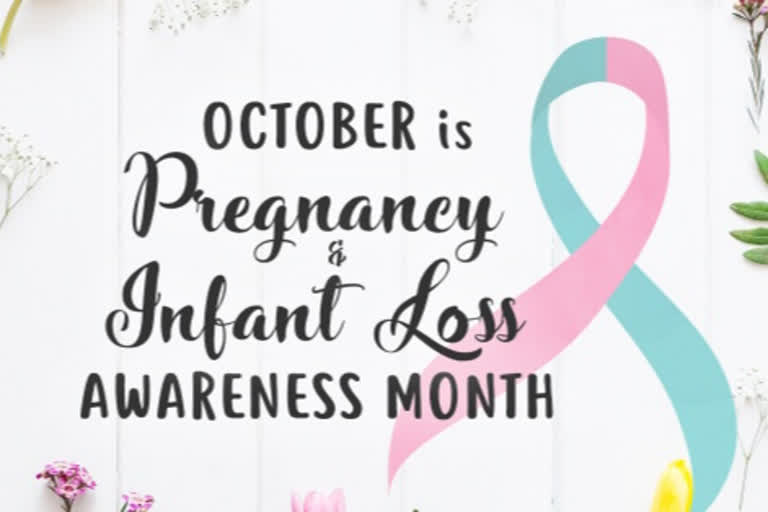Hyderabad: October is observed as 'Pregnancy and Infant Loss Remembrance Month' with the aim of remembering the newborns who died in the womb of a mother before birth or immediately after birth. The death of a fetus, the birth of a dead child, or the death of a newborn immediately after birth is a devastating incident to occur to any family.
According to the World Health Organization and the United Nations, more than two million cases of stillbirths are reported every year. On the other hand, if we talk about the year-wise figures, in the year 2015, about 2.6 million cases of stillbirths were reported, in which the number of stillbirths per day was about 7,178. Most of these cases were identified in developing countries.
'Pregnancy and Infant Loss Remembrance Month' is observed every year across the world in October with the aim of remembering not only stillbirths but also fetuses who have been miscarried and newborns who lose their lives immediately after birth. This event was first introduced in the United States and Canada as Pregnancy and Infant Loss Remembrance Day.
The President of the United Nations, Ronald Reagan, first announced the observance of Pregnancy and Child Loss Remembrance Day on October 25, 1988. In 2000, Robin Baer, Lisa Brown, and Tammy Novak petitioned the federal government to recognize October 15 as Pregnancy and Infant Loss Remembrance Day. Since then, every year this day is organized all over the world on 15 October and the month of October is observed as Pregnancy and Infant Loss Remembrance Month.
The purpose of observing Pregnancy and Child Loss Remembrance Month is not only to remember the children who died during pregnancy, at birth, or soon after, but also to spread awareness among the general public about the causes and prevention of miscarriage, stillbirth, and neonatal death. During this period of one month, programs that spread public awareness are organized, where children who died during pregnancy, at birth, or soon after due to any reason are remembered. Significantly, on 15 October, Pregnancy and Infant Loss Remembrance Day is also observed all over the world.
Also read: WB govt, UNICEF rope in SHGs to stop child marriage, teenage pregnancy
Generally, people do not understand that the death of an infant in the mother's womb is not always called abortion. According to the Centers for Disease Control and Prevention (CDC), if the fetus dies before 20 weeks in the mother's womb, then it is called a miscarriage. At the same time, the death of the child in the mother's womb after or before the twentieth week is called a stillbirth. Both these conditions can arise due to many reasons. Some of which are as follows:
Reasons for Stillbirth:
- The embryo does not develop properly.
- Congenital abnormality in the child at birth.
- The infant is not born even after 9 months.
- The mother gets infected with a disease during pregnancy.
- The presence of disorders such as hypertension, obesity, or diabetes in the mother.
Reasons for Miscarriage:
- Abnormality in genes.
- Hormone-related issues.
- Infections during pregnancy
- Problems with thyroid, diabetes.
- Excessive smoking, consumption of alcohol, or drug abuse.
- Accidents
Diet-related, sitting, and work-related instructions are provided to women during pregnancy by doctors all over the world. Along with their observance, regular medical check-ups and awareness are very important. Especially for such pregnant women who already have hormonal or any other type of problems or disease, someone diagnosed with a weak fetus needs to take more care of themselves.
Along with taking all the precautions instructed by the doctor, the pregnant woman should take care of the activity of the unborn baby, i.e. the process of its movement in the body. Apart from this, if there is bleeding at any stage of pregnancy, severe pain in the abdomen or waist, and if the baby does not move for a long time, it becomes necessary to contact the doctor immediately.
Despite all the precautions, if the life of the fetus or child is not saved, then in most cases the physical and mental health of the mother can be greatly affected. Usually, in such cases, symptoms of depression are seen in women. In such a situation, it is very important that she should not be blamed for not being able to give birth to a healthy child in any form, but every effort should be made to maintain her physical and mental health.



